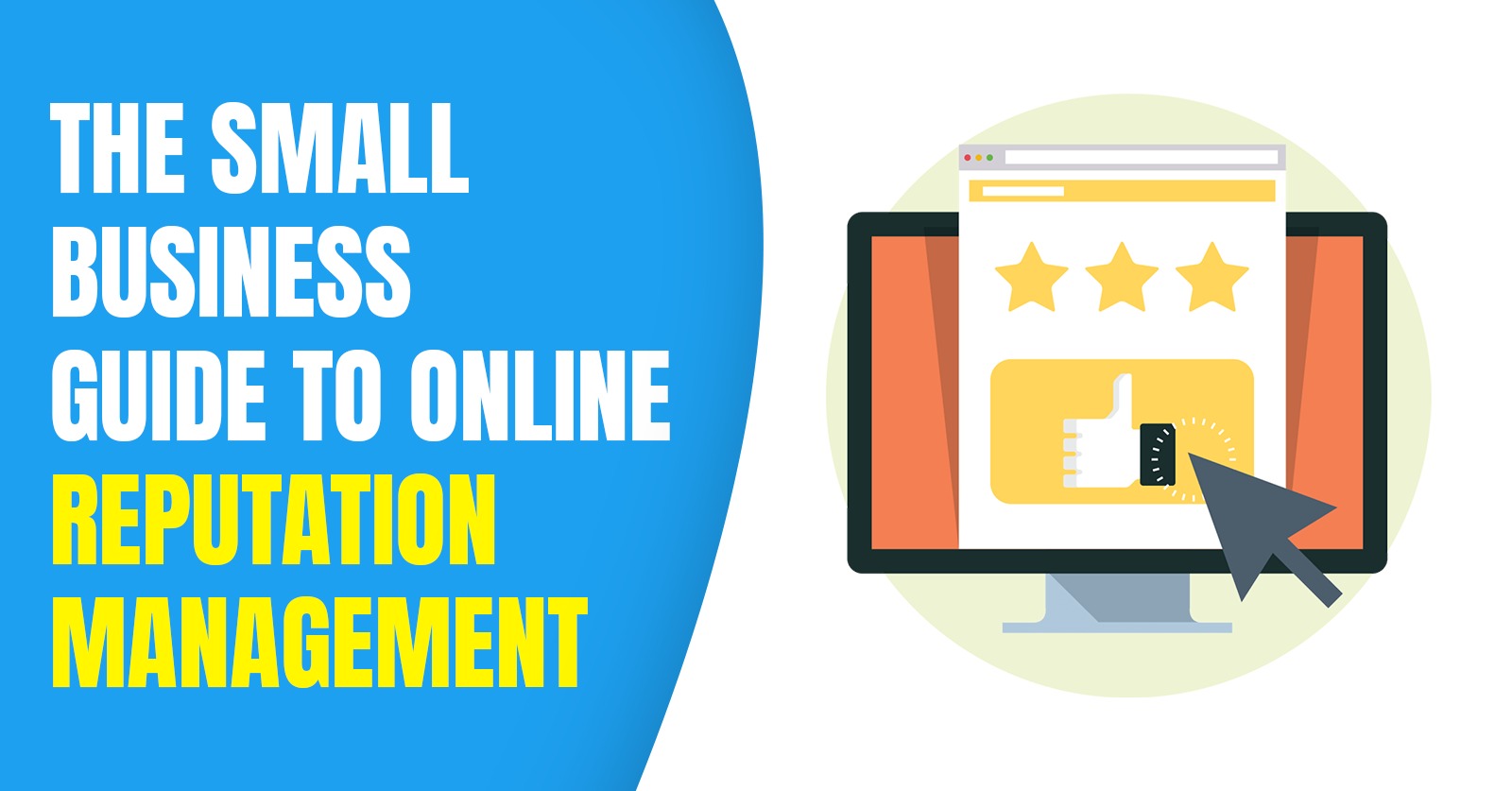The Small Business Guide to Effective Online Reputation Management

The extensive reach of the internet has made it easier for us to quickly access different areas of information about any brand with just a click. This has opened up an option to easily form an opinion about whether we wish to subscribe to or refrain from engaging with a specific brand. In today’s era, achieving a position on Google’s initial search page is a WOW! for a brand.
This is due to the tendency of users to primarily interact with businesses showcased at the forefront. In the current landscape, the internet serves a purpose on the users recommendations. As a result, managing your online reputation has become essential to remain effectively engaged with users. This is where Online Reputation Management (ORM) plays a crucial role. Local Reputation Marketing is the practice of monitoring, influencing, and managing the online presence of an individual, brand, or organization. A positive internet reputation can draw new customers and foster trust, while a negative reputation can turn away potential customers. Consumers rely extensively on online reviews and feedback.
Here, we’ll discuss the value of Small Business Reputation Management and offer practical tips for building positive ORM.
Statistics
Let’s look at some startling facts that demonstrate the importance of online reputation management before getting into the specifics:
- In 2021, 87% of consumers will read online reviews of local companies, according to a BrightLocal survey.
- According to research from BrightLocal, 97% of consumers search online for local businesses.
- According to a Harvard Business School research, independent eateries’ sales increased by 5-9% for every additional star on Yelp.
- According to a survey conducted by Moz, online reviews are believed to contribute to approximately 13% of the factors influencing the ranking of local company results on Google.
What is Online Reputation Management?
Online Business Reputation management involves the development of a brand’s image across the internet. This is achieved by replacing inaccurate content with relevant material, thereby enhancing visibility through the assistance of various online algorithms.
A brand should present accurate solutions to user inquiries in order to establish trust. Failure to address these queries can erode a user’s confidence in the brand, leading to negative feedback that online algorithms take note of. Consequently, the brand’s reputation suffers as it descends in search rankings, providing an opportunity for competitors to gain prominence.
Who Should Have a Reputation Management Strategy?

Irrespective of size or sector, every company should establish a strategy for managing its reputation. In today’s digital landscape, individuals can freely share their opinions and interactions with companies online, whether it be local businesses or global corporations. Consequently, whether you’re an emerging startup or a well-established entity, taking preemptive steps to oversee your online reputation is critical for preserving your brand’s image and upholding customer confidence. Initiatives such as addressing customer feedback, accentuating favorable encounters, and actively supervising online appraisals are imperative for enhancing your online standing.
You May Also Like: How to Recover From Google Penalty?
Why is Reputation Management Important?
Maintaining a professional image:
Considering the competition , for a small business its a bigger challenge to build a identity. A business that possesses a solid reputation holds greater sway over its customers. Given the accessibility of digital avenues, managing one’s reputation has become notably simplified, as it permits the seamless introduction of a business on a global scale while upholding a polished image.
Influence Customer Perception
The perception that customers about a brand is significantly influenced by its online reputation. Positive reviews, ratings, and testimonials enhance the credibility, making consumers more likely to select the products or services of that particular brand.
Drive Customer Acquisition:
New customers can be drawn in by a solid online reputation. 94% of shoppers feel a positive online review increases their likelihood of using a business, according to BrightLocal.
Keep Customers Loyal:
Sustaining a positive online reputation cultivates customer loyalty. When customers observe your dedication to addressing critiques and delivering exceptional service, they are more likely to remain loyal to your business.
Positive reviews can increase your exposure in search engine results and benefit your overall SEO efforts. Search engines use online reviews and ratings as a ranking element.
Where Online Should You Focus Your Strategy?
Review Platforms:
Prioritize platforms aligned with your industry, such as Google My Business, Yelp, and TripAdvisor. Demonstrate your commitment to customer feedback and issue resolution by vigilantly monitoring reviews and promptly responding.
Social Media Channels:
Engage with customers across platforms like Facebook, Instagram, Twitter, and LinkedIn. Address comments, messages, and mentions to ensure a positive customer experience and manage any concerns openly.
Search Engine Rankings:
Regularly monitor the positioning of your company name and relevant keywords in search engine results. Ensure the accuracy of the information presented and take action against any potentially damaging content.
When Should You Consider a Reputation Management Strategy?

Under the following conditions, think about putting a reputation management strategy into action:
Negative Online Presence
Addressing and managing unfavorable online comments, criticism, or media coverage promptly is essential. Ignoring such negative content can exacerbate the damage to your online reputation.
Competitors Analysis
When your competitors hold greater online recognition and credibility, consider investing in reputation management. This strategic move enables you to balance the competitive landscape and attract fresh customers through proactive interaction and the promotion of positive experiences.
Business Expansion
As your company expands, enters new markets, or introduces novel products and services, the significance of reputation management escalates. Building a positive initial impression could significantly contribute to your success on a larger scale.
How Bluetick Will Help You in Online Reputation Management for Your Business?
Monitoring, controlling, and enhancing a company’s online reputation are the areas of expertise of a reputation management company. You can get help from Bluetick, a reputed reputation management business, in successfully managing your internet reputation. They offer the following services using their knowledge and resources:
Monitoring
Bluetick uses cutting-edge tools and methods to keep an eye on your online activity across a variety of platforms. They keep track of mentions, reviews, and customer comments to make sure you are aware of what people are saying about your company.
Strategic Planning
Bluetick closely collaborates with you to create a thorough reputation management strategy suited to your corporate objectives. They offer advice on how to take advantage of favourable reviews, maximise your digital marketing efforts, and create a powerful online brand.
Crisis management
Bluetick offers quick and efficient crisis management techniques in the event of a reputation problem. They help reduce the effects of unfavorable information and restore your company’s positive internet reputation.
Conclusion
To compete and succeed in the modern digital environment, small businesses must actively maintain their online reputation. Adopting a successful online reputation management approach is crucial for bringing in new clients, retaining existing ones, and preserving a favorable brand image. You can successfully traverse the online world and ensure the long-term survival of your small business by keeping an eye on your online presence, interacting with customers, optimizing your digital marketing efforts, and working with trustworthy reputation management businesses like Bluetick. The top digital marketing service agency provides a wide range of services to assist companies in maximizing their online presence and directing targeted traffic to their websites.



